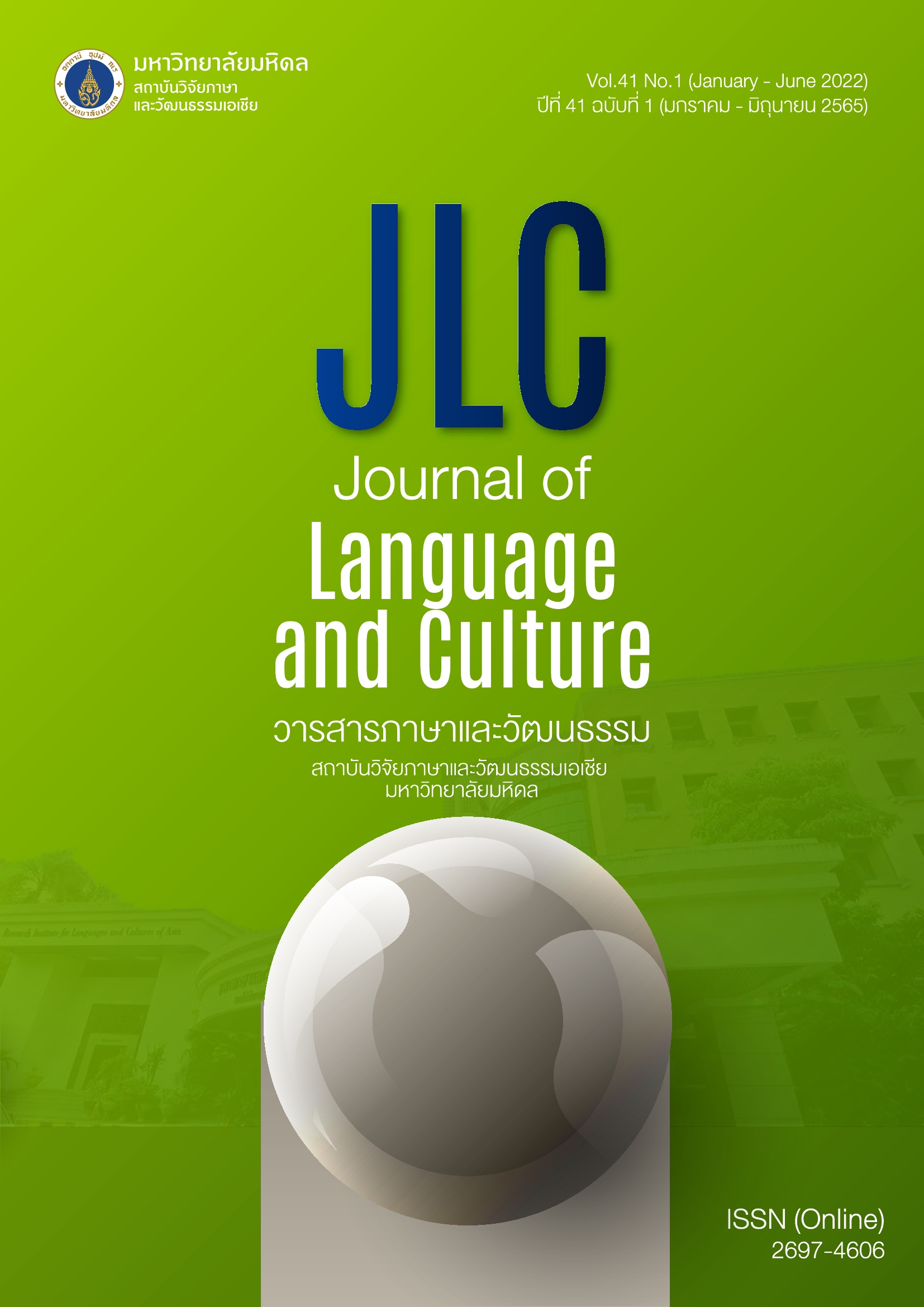Thai digital natives’ identification and experience of social media cyberhate patterns
Main Article Content
Abstract
Thailand is among the top 10 users of social media in the world and the prevalence of cyberhate is becoming more common in the everyday lives of young Thai digital natives. This research aims to examine Thai digital natives’ understanding of the differences between offline and online hatred, their perception of social media stimulation patterns leading to cyberhate, and their experiences of linguistic utterances relating to cyberhate found on a variety of social media platforms (i.e. Facebook, Twitter, Instagram, and YouTube). In total, 184 informants participated in the study. Data was collected through anthropological research methodologies using interview survey questionnaires, in-depth interviews, and pictorial ethnography to gain insight into the experiences of Bangkokian students ages 13 to 23 years. Results show that according to this population, online hatred is more pervasive than offline hatred and is influenced by cultural norms that govern usage and the primary purpose of the social media platform. The hierarchical nature of Thai culture also makes it easier to express hatred through online channels as opposed to in-person interactions. Results also reveal details concerning how each social media platform fosters different context-based forms of hatred and discrimination patterns which are related to gender, ageism, appearance, ethnicity, and political leanings. The youth perspective highlighted in this research can provide clearer understandings of cyberhate patterns prevalent in Thai culture. Directions for future research stemming from this project could explore the potential for cyberhate prevention education, which would be more suitable for young Thai digital natives.
Article Details
The articles featured in the Journal of Language and Culture (JLC) constitute academic works representing the viewpoints of the respective author(s). It is crucial to note that these opinions do not necessarily reflect those of the Editorial Board.
All articles published in JLC are released under the Creative Commons Attribution 4.0 International License (CC BY 4.0). This license grants permission for unrestricted use, distribution, and reproduction in any medium, provided proper credit is given to the original author(s) and the source.


